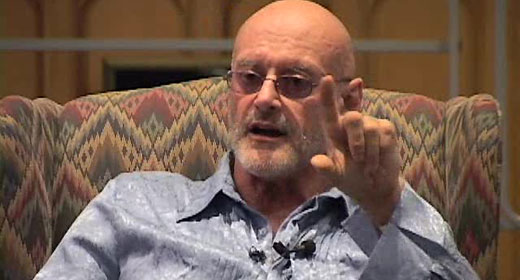By Donna Quesada: We are conditioned to fill in any gap of silence with noise.
 If a conversation goes quiet for even a few seconds, we scrabble for any observation or remark, just to keep the conversation flowing. We even have an expression, the “awkward silence,” to describe what we perceive to be an unwelcome deadness in the midst of an exchange with someone. And of course, in the world of radio, it is called “radio silence,” an even scarier lapse.
If a conversation goes quiet for even a few seconds, we scrabble for any observation or remark, just to keep the conversation flowing. We even have an expression, the “awkward silence,” to describe what we perceive to be an unwelcome deadness in the midst of an exchange with someone. And of course, in the world of radio, it is called “radio silence,” an even scarier lapse.
But what if we had been conditioned differently? What if the awkward silence were thought of as “Noble Silence?”For, that is what it is called in a Zen temple, where words are used sparingly, if at all. I remember the first time I sat a Zen meditation retreat, and I was instructed not to talk. I thought it would be an impossible order to maintain for seven days. But I came to see that most of our habitual chatter is unnecessary.
That’s not to say that pleasant conversation doesn’t have its rightful place and function. It serves as a means of communication and bonding in both professional and personal relationships. But the purposeful practice of silence on occasion serves as a refreshing counterpoint to much of the superfluous jabbering, much of which is simply automatic and without mindful intention.
When I stepped out of temple and back into the world, after my first week-long retreat, everything seemed so loud. I thought to myself, is this how it always is?
Through the years, as I continued my spiritual journey in other areas, I relished the parallel tradition in Kundalini Yoga, in which you sit face-to-face, holding your partner’s gaze for up to an hour during certain meditations. I found that you’re able to connect to a person even more deeply than if words had been used. You are gazing directly into their soul.
Try adding a calm but comfortable silence to your conversations or even your work presentations, while remaining totally present with how that conscious space softens, deepens and transforms the moment. You’re leaving room for a point to be digested or contemplated. You’re diffusing the collective tendency toward reactivity. You are saying, without actually saying, that it’s okay to sometimes leave things unsaid… to let go of the tendency to hammer down every point. Finally, you’re allowing room for listeners to gain clarity and realization on their own, which is always more powerful than when it is done for them.
The silence is part of what is known in Zen as emptiness. It is where reality is seen in all its ephemeral grace. There’s nothing to attach to. This is where compassion is born. When we allow ourselves to melt comfortably into this evanescent field, we find that there’s a restrained power there… not an egoic power, but rather an inner strength that comes from having surrendered the need to prove anything.
By letting go and allowing yourself to dissolve into the silence, you are trusting the space, trusting the universe, trusting the process, and even trusting the unknown.
There is a humorous anecdote about a certain occasion when a British magistrate in India requested a meeting with Gandhi. When he was told that Gandhi couldn’t talk with him on that day, he said in exasperation, “Oh no… don’t tell me this is one of his days of silence!”
In the spirit of the Indian holy man, if the idea of bringing silence into your life appeals to you, you could try making one day a week a “silent day!” It’ll be your own spiritual practice.







































